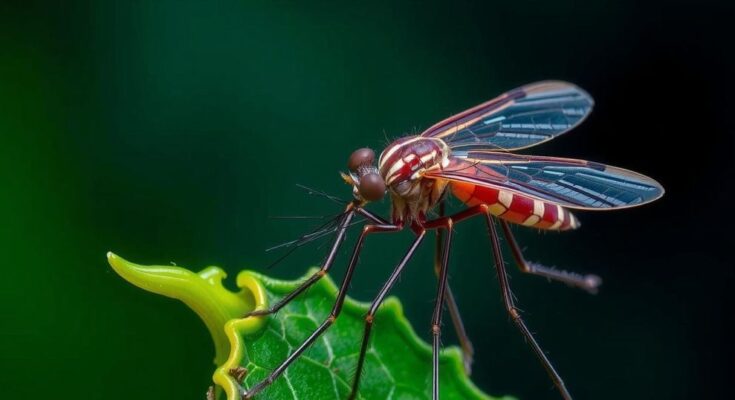Climate change is responsible for approximately 20% of the record dengue fever cases this year, according to U.S. researchers. The study indicates that rising temperatures promote the spread of the disease into new territories. Furthermore, Wolbachia-infected mosquitoes show promise in controlling dengue outbreaks.
Recent research indicates that climate change accounts for nearly 20% of the record dengue cases worldwide this year, according to U.S. researchers. These findings highlight the direct link between rising temperatures and the proliferation of diseases such as dengue, which has historically been confined to tropical regions but is spreading to new areas due to warming climates. As temperatures rise, particularly in regions ideal for mosquito breeding, the incidence of dengue is predicted to escalate significantly over the coming decades. In a study that is yet to undergo peer review, researchers assessed the impact of heightened temperatures on dengue infections across 21 countries. Erin Mordecai, a prominent infectious disease ecologist at Stanford University, emphasized the sensitivity of dengue to climatic changes, noting that the ideal temperature range for its spread lies between 20-29 degrees Celsius. Projections suggest that regions in Peru, Mexico, Bolivia, and Brazil could see a dramatic increase of up to 200% in dengue cases within the next 25 years as they warm into this range. Currently, it is estimated that around 257 million individuals reside in areas where global warming may significantly elevate dengue transmission rates. Despite the World Health Organization recording over 12.7 million dengue cases in 2023, significant underreporting implies the actual figure may be closer to 100 million. At the same time, promising developments in combating dengue have emerged, particularly through research on mosquitoes infected with the Wolbachia bacteria, which inhibits dengue transmission. In Brazilian cities where Wolbachia systems have been introduced, the impact of dengue outbreaks has been notably reduced compared to areas lacking such interventions. The collaboration with Brazilian authorities aims to expand production to safeguard vulnerable populations from dengue’s threats.
This article discusses a significant public health concern regarding the rising incidence of dengue fever, a viral disease transmitted by mosquitoes, which has been exacerbated by climate change. It presents findings from researchers emphasizing the connection between global warming and the spread of dengue, particularly in regions previously free from the disease. Additionally, it introduces innovative strategies utilizing Wolbachia-infected mosquitoes to combat the disease, thus offering hope for mitigating its impacts in affected areas.
The study underscores the severe implications of climate change on public health, particularly regarding the spread of dengue fever. As evidenced by the research, nearly 20% of the global dengue cases this year have been linked to rising temperatures. Furthermore, novel strategies using Wolbachia-infected mosquitoes present a promising avenue for reducing incidence rates and protecting communities. Collective efforts to address climate change and innovative vector control methods are crucial in combating the escalating dengue threats.
Original Source: www.barrons.com




